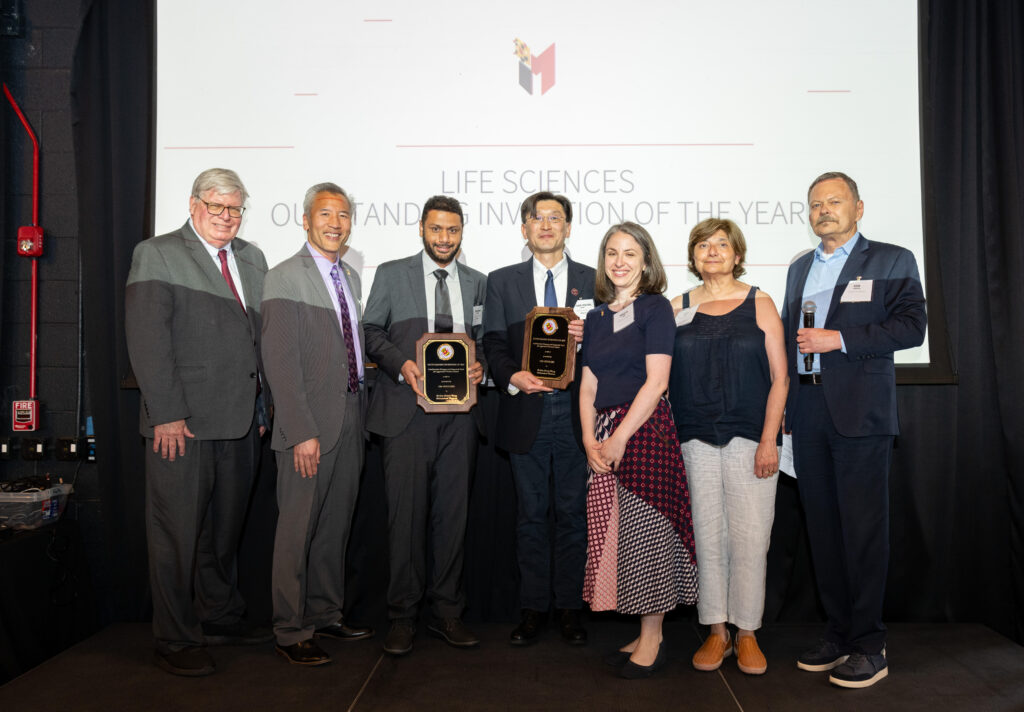
Therapy developed by University of Maryland Eastern Shore researchers for an advanced form of prostate cancer was recently named Life Sciences Invention of the Year.
The invention, “Combination Therapy and Diagnostic Tool for Aggressive Prostate Cancer” developed by UMES associate professor Dr. Peter Wang and senior research fellow Dr. Mohammad Waseem, captured first place in its division during the Innovate Maryland competition held April 29.
The researchers’ work, one of three nominees in the Life Sciences category and one of 12 overall finalists in the competition, is an effective treatment to castration resistant prostate cancer, a form of the disease that is difficult to treat.
“I think that the panel was very interested in our invention because they like this concept of a new combination cancer therapy,” said Wang, who has been at UMES since 2016. “It’s a very novel therapeutic approach to treat an aggressive form of prostate cancer without an effective cure.”
Innovate Maryland is an annual celebration of University System of Maryland researchers’ creativity in translating “cutting edge research into practical, impactful solutions to address global challenges”, according to the event’s website. The nominees are selected through patent applications submitted through the University System of Maryland’s Intellectual Property Office.
“This award is a testament to the exceptional research being conducted by Dr. Wang and Dr. Waseem for a number of years,” said Dr. Sandeep Gopalan, Interim Vice President for Research at UMES. “It evidences the importance of UMES’s world-class research in treating a very serious disease.”
The researchers’ treatment method combines gene therapy that introduces a tumor-suppressing mimic gene with androgen receptor antagonists, which are drugs that stop the growth and spread of cancer cells.
The basis for the invention was a result of the research Wang and Waseem published last year, which focuses on the study of prostate cancer disparities between white and African-American men. The statistics showed that African-American men experience an incidence rate 1.7 times higher and a mortality rate 2.4 times higher than their white counterparts.
After receiving recognition for their invention, Wang said one of the next steps is to conduct additional research to detect early-stage cancer and predicting a clinical outcome. There is also a focus on commercializing the device with the help of grant applications.
“For our work to be selected means a lot because it means that this is an important study that has clinical value and significance,” said Wang, who has three patents currently in the application process. “It also means the experts on the panel think there’s a commercialization value that can potentially solve or help to resolve the current challenges for this aggressive type of prostate cancer.”

